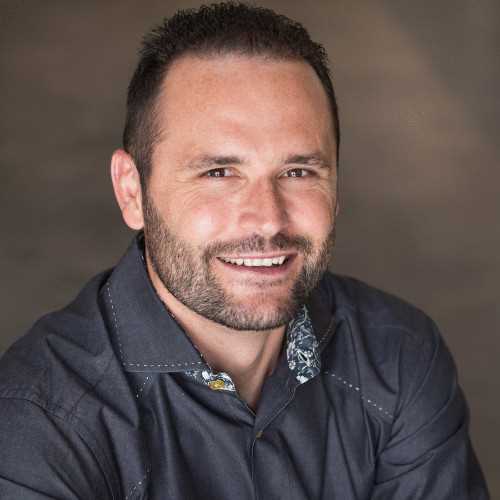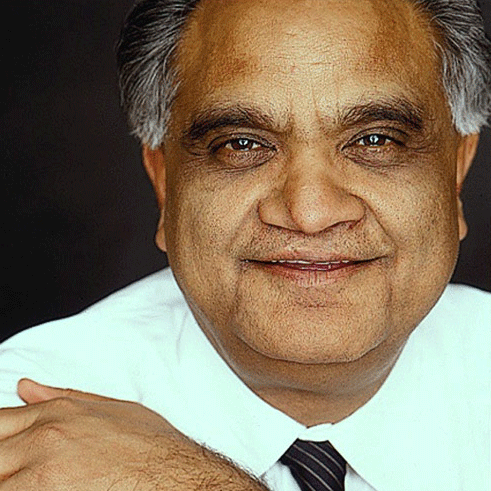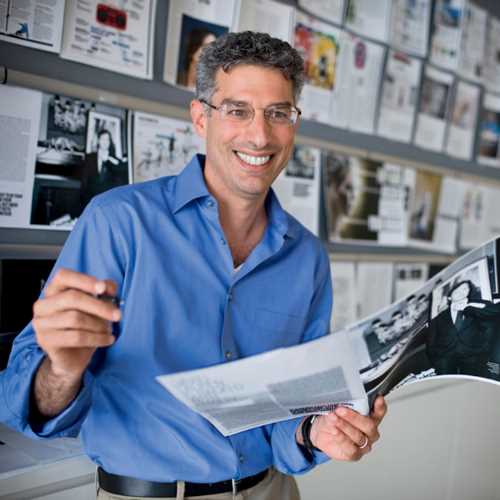
Vivek Wadhwa
- Academic, Singularity University & Carnegie Mellon University
- Columnist for The Washington Post
- Silicon Valley Forum's 2018 Visionary Award-Winner
Travels From
California
Vivek Wadhwa Speaker Biography
From tech entrepreneur and business owner to accomplished academic and widely published writer, Vivek Wadhwa is an innovation agent who leads research at Singularity University, an institution that educates a select group of leaders about the exponentially growing technologies that are soon going to change our world. He also teaches on the impact of these technologies, at Duke University’s Pratt School of Engineering, Carnegie Mellon University’s College of Engineering and Stanford Law School. The advances he discusses—in fields such as robotics, A.I., computing, synthetic biology, 3D printing, medicine, and nanomaterials—are making it possible for small teams to do what was once possible only for governments and large corporations to do: solve the grand challenges in education, water, food, shelter, health, and security. Wadhwa is a syndicated columnist for The Washington Post and a regular contributor to The Wall Street Journal, The Huffington Post, and VentureBeat. Wadhwa shares with audiences how technology will transform our world, disrupt entire industries, and create new ones. An observer and researcher on the trends shaping globalization and innovation around the world, Wadhwa also shows the keys to having the U.S. remain competitive in the face of rapid transformation shaping business in India, China, and Latin America. He is the author of Innovating Women: The Changing Face of Technology (September 2014) and Immigrant Exodus: Why America Is Losing the Global Race to Capture Entrepreneurial Talent (October 2012).
Harnessing the Power of AI for Exponential Business Growth
Today, new “large language models” (llms) that power tools such as Chatgpt have surprised even their creators with their unexpected talents. They are about to make obsolete all of the data-analytics tools that corporations use, from tried and tested decision-support systems to knowledge-based and expert systems. This is because they can effectively analyze billions of times more information than anything before. Their effect will be akin to the introduction of electricity — and everything that has already been electrified can also be “cognified.”
Vivek Wadhwa will explain in simple terms what these emerging technologies are, including:
What led artificial intelligence (A.I.), the stuff of science fiction, to failure in the ’90s; the new methods of data analysis; and the advent of the GPU that revived it;
Separating fact from fiction: the difference between today’s “narrow” or “weak” A.I. and tomorrow’s artificial general intelligence and superintelligence;
ChatGPT and the classes of machine-learning strategies — supervised, unsupervised, and reinforcement — and their application in business
How A.I. can provide the cheap, reliable, industrial-grade digital smartness to transform decision-making in everything from stock trading, document review, and financial analysis to security, intelligence, fraud detection, and law enforcement;
Cutting through the hype: the limits and practicalities of business A.I.;
Regulatory and reputational concerns arising from A.I.’s opacity;
The big picture and how converging exponential technologies will enable us to solve some of humanity’s greatest challenges, including the cure of disease, increasing food production, poverty alleviation, and education.
Attendees will learn of the incredible opportunities we now have to build new billion-dollar businesses in trillion-dollar industries. They will also learn some of the dangers of these technologies.
Vivek’s book From Incremental to Exponential: How Large Companies Can See the Future and Rethink Innovation will provide valuable follow-up reading for attendees who want to learn the secrets of Silicon Valley: how it has mastered exponential technologies and developed the new innovation methods that enable exponential growth.
Disrupted Industries and Trillion-Dollar Opportunities
Not long ago, you could see your competition coming. Management guru Clayton Christensen coined the term “disruptive innovation” to describe how competition worked: a new entrant attacked a market leader by launching low-end, low-priced products and then relentlessly improving them. Now Christensen’s frameworks have themselves been disrupted—because you can no longer see the competition coming. Technologies are no longer progressing in a predictable linear fashion, but are advancing exponentially and converging. Fields such as computing, medicine, artificial intelligence, 3D printing, robotics, nanomaterials, and synthetic biology are advancing simultaneously, and combining these allows one industry to rapidly disrupt another—before market leaders even know what has hit them.
Practically every industry will be disrupted over the next few years, including finance, insurance, health care, manufacturing, transportation, education, I.T. services, and communications. Very few of today’s Fortune 500 companies will be on that list by the early 2020s. They will go the way of Blockbuster, Kodak, RIM, Compaq, and Nokia.
This is not all bad news, because disruption creates opportunities. New industries will emerge, and companies that lead the change will have the trillion-dollar market capitalizations. Business executives need to understand that:
trillion-dollar opportunities happen at the intersections of exponential technologies
disruptions are happening in every industry where technology can be applied
entrepreneurs can now do what only governments and big corporations could do before
if they don’t disrupt themselves, they will be disrupted by startups from other industries.
Businesses must learn the new rules of the innovation game and transform their employees into intrapreneurs who think—and act—like the Silicon Valley entrepreneurs who are gunning for Goliath.
Vivek Wadhwa will teach the basics of exponential technologies and convergence, provide examples of the disruptions that are under way in several industries, discuss the new rules of the innovation game, and challenge his audience members to think like today’s technology entrepreneurs—and to build the new billion-dollar businesses within their companies.
Why Innovation Isn’t Dead: A Look at Our Technology Future
There is a lot of pessimism about the future. Some people argue that, other than advances in computer-related fields, technological progress has actually stalled: the internal-combustion engine, invented in 1876, still rules our highways; the cancer death rate has barely changed since 1971; today’s Internet was actually designed in the 1960s. There are fears that world wars will break out over water and energy shortages and that our standards of living will fall.
These perceptions couldn’t be further from the truth.
Vivek Wadhwa will discuss why he believes that this will be the most innovative decade in human history. He will explain how exponentially advancing technologies—in fields such as robotics, A.I., computing, synthetic biology, 3D printing, medicine, and nanomaterials—will enable us to start solving humanity’s grand challenges.
These technologies will disrupt entire industries, provide opportunities to create new ones, and help solve humanity’s grand challenges. For example:
3D printing and robotics will enable manufacturing to return to the U.S.
Advances in DNA sequencing and synthetic biology will make it possible to engineer drugs for the individual and create personalized stem cell lines.
Autonomous, self-driving cars will revolutionize urban transport.
Low-cost tablets and artificial-intelligence–based learning systems will change the teaching paradigm and bring education to the world’s masses.
Star Trek–like tricorders, holodecks, and replicators will become a reality.
These advances aren’t going to come from governments and large research labs but from small groups of motivated people. Wadhwa will give you a tour of the Star Trek future


























